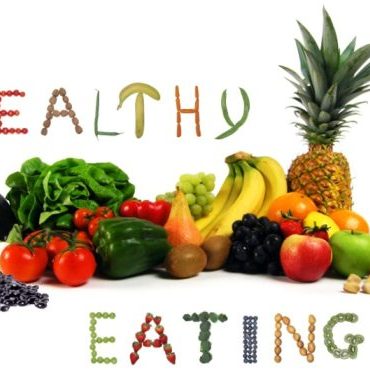 Ketosis, Creatine, Diabetes… All you need to know and more!
Ketosis, Creatine, Diabetes… All you need to know and more!
Is ketosis an effective way to lose weight?
Ketosis occurs when your body is starved of nutrients such as carbohydrates, protein and fats and often occurs around 2 days up to weeks of starvation. It can also result from a very low carbohydrate diet where your body is forced to break down muscle protein, then body fat (yes in that order) as a source of energy to fuel the brain, heart and muscle. Both of these processes can have unfavourable outcomes on the body including a reduction in metabolic rate which is bad if you want to burn more fat to lose weight!
High levels of ketone bodies result in metabolic acidosis (ketoacidosis/ketosis) resulting in considerable quantities of ketones in the urine. This causes your bodies pH levels to become more acidic. To help counteract, the kidney’s produce large amounts of ammonia and bicarbonate and excrete ammonium ions to return the pH of the blood to normal.
Over time ketosis can lead to problems of the kidneys and possible kidney disease and is not recommended as an effective way to lose weight in my professional opinion. Going into ketosis can also put you at risk of developing Gout, a painful condition associated with the accumulation of uric acid deposits in the joints, mainly the big toe. The reason why this occurs is that ketones and uric acid compete for excretion in the kidney, so high levels of ketones will reduce the amount of uric acid excreted from the body. Also, rapid weight loss if obese with metabolic diseases such as metabolic syndrome and insulin resistance can lead to an increase in fats in the blood which can lead to fatty liver disease or non-alcoholic fatty liver disease.
Is creatine good for you?
Even if you’re not a weight lifter, you’ve undoubtedly heard of creatine, one of the most researched supplements in history. It’s a combination of amino acids produced by the liver, kidney, and pancreas. Creatine is not a steroid—it’s naturally found in muscle and in red meat and fish, though at far lower levels than in the powder form sold on bodybuilding websites and stores. How does it work? Creatine reduces fatigue by transporting extra energy into your cells. Adenosine triphosphate, or ATP, is the compound your body uses for energy. For a muscle to contract, it breaks off a phosphate molecule from ATP. As a result, ATP becomes ADP (adenosine diphosphate). The problem: You can’t use ADP for energy, and your body only has so much stored ATP. The fix: ADP takes a phosphate molecule from your body’s stores of creatine phosphate, forming more ATP.
If you have more creatine phosphate—which you do if you take a creatine supplement—you can work out longer and do sets of, say, eight reps instead of six. Over weeks and months, that added workload allows you to add lean muscle mass, lift heavier weights, and become stronger. But should you worry about side effects? Does creatine cause you to lose weight when you stop it, or does it hurt your kidneys, like you may have heard?
Here are the key myths and facts you need to know.
- Creatine is similar to anabolic steroids. Myth. Steroids mimic testosterone and are banned in the Olympics and in professional sports. By contrast, the International Olympic Committee, professional sports leagues, and the National Collegiate Athletic Association do not prohibit creatine. (The NCAA won’t let colleges give it to athletes, though.)
- Creatine can help you build muscle mass without hitting the gym. Myth. It shows some improvement in kids with muscular dystrophy, even if they’re not exercising,. The best effect in healthy humans is seen when creatine is combined with resistance exercise training.
- Creatine causes gastrointestinal upset. True—but it’s rare. Studies show 5 to 7 per cent of people experience either stomach aches, diarrhoea, or both.
- Creatine will help you run a faster 5K. Myth. Creatine helps athletes with more fast-twitch muscle fibres (used to swing a baseball bat) more than athletes with more slow-twitch ones (used by marathon runners). If you’re an endurance athlete, if you’re not doing something that involves the fast-twitch muscle fibres, you don’t need to be on creatine.
Is caffeine contributing to my Obesity?
Caffeine is a compound found in the leaves, seeds or fruit of a number of plant species, including coffee, tea and cocoa. It is a strong stimulant that acts on the central nervous system, speeding up messages to and from the brain.
Caffeine is more commonly associated with weight loss rather than weight gain, being used in a number of weight loss medications to stimulate the metabolism, however, the long term safety and effectiveness of most of these drugs are very questionable.
There are a number of ways in which caffeine intake could contribute to overweight and obesity, and these relate to the form in which caffeine is ingested. Drinking several cups of coffee as cappuccinos or lattes with sugar will add significant kilojoules to your daily intake, as will hot chocolates or chocolate bars. Caffeine is also found in a number of cola beverages, which generally have a high sugar content to balance the flavour. A recent study suggested that if caffeine was removed from these sugary drinks it would be possible to remove as much as 10% of the sugar without changing the taste.
So if your caffeine comes from cappuccinos, chocolate or cola soft drinks then it is very likely that this is contributing to excess body fat levels. If you can’t kick the caffeine habit, reduce your intake over time and enjoy it in green tea instead.
How can I tell if I have diabetes?
Here are the ten most common early warning signs of type 2 diabetes…
- Numbness
Numbness that starts as a tingling in the hands, fingers, legs, and feet is an early warning sign of diabetes. This occurs due to an increase in blood sugar levels, causing blood vessel restriction to the extremities, and eventually damage to nerve fib - Increased Urination
Typically, diabetes sufferers claim they had an overwhelming urge to urinate, which lead to a diabetes diagnosis. This increased urination will often result in severe dehydration. - Weight Loss
Rapid and unexplained weight loss is common to unmediated type 2 diabetes because the body can’t absorb glucose (sugars) properly. - Increase in Appetite
With sudden weight loss often comes an increase in appetite, which might make you feel fortunate at first because you feel like you can eat anything you want without consequences. However, your body is in a diabetic state, robbing your cells of essential energy, which explains hunger. - Blurry Vision
Blurred vision is a common cue of type 2 diabetes. This occurs as glucose levels spike, damaging blood vessels and restricting fluid to the eyes. If a diabetes diagnosis isn’t made, the patient could suffer complete vision loss. - Itchy, Dry Skin
When diabetes affects blood circulation, our sweat glands will often become dysfunctional, resulting in dehydrated, flaky, itchy, and irritated skin. - Unexplained Fatigue
We’ve already established that insulin resistance leads to an inability to absorb essential energy (sugars). When this occurs, energy levels suffer, causing extreme mental and physical fatigue. - Unquenchable Thirst
Increased urge to urinate will leave the body in a state of rapid dehydration. The body will demand that lost liquid be replenished, and an unquenchable thirst will often result. - Slow Healing Cuts or Bruises
You might notice that if you suffer a cut or bruise, healing time will take much longer than it normally does. This is due to high glucose levels weakening the immune system and slowing the rate of healing. - Irritated Gums
Oftentimes, type 2 diabetes sufferers notice that their gums become red, swollen, and irritated. They might also literally see the gums receding from the teeth and experience gum infections, and eventually, gum disease will result.
I am breastfeeding, and I am hungry all the time, with insatiable cravings for sweets! I try to eat fairly well and have healthy snacks, but I still seem to be topping up with biscuits and cakes. What can you suggest to keep me on track nutritionally and stave off the sugar cravings?
Many breastfeeding mums crave sugar. When you feel tired, high-energy sugary foods, such as biscuits and chocolate can seem like a good solution. The problem is that once this sugar fix wears off these kinds of food leave you feeling wearier than you were in the first place. They’re also an easy way to consume excess kilojoules that can lead to weight gain. Breastfeeding itself burns a lot of kilojoules – most new mums require an extra 480 calories per day – so it’s essential to eat regular meals and healthy snacks to maintain energy. Choosing low-GI snacks will stabilize your blood sugar levels and give you the stamina to get through the day. They will also keep you feeling satisfied, so you will be less likely to reach for unhealthy treats.
The following snack ideas will help curb your sweet cravings.
- A wholemeal crumpet with natural peanut butter, banana and honey
- Low-fat yoghurt with a few spoonfuls of untoasted muesli
- A smoothie made with fruit and low-fat yoghurt
- A slice of raisin toast topped with reduced-fat ricotta
- A home-made wholemeal fruit and nut muffin

